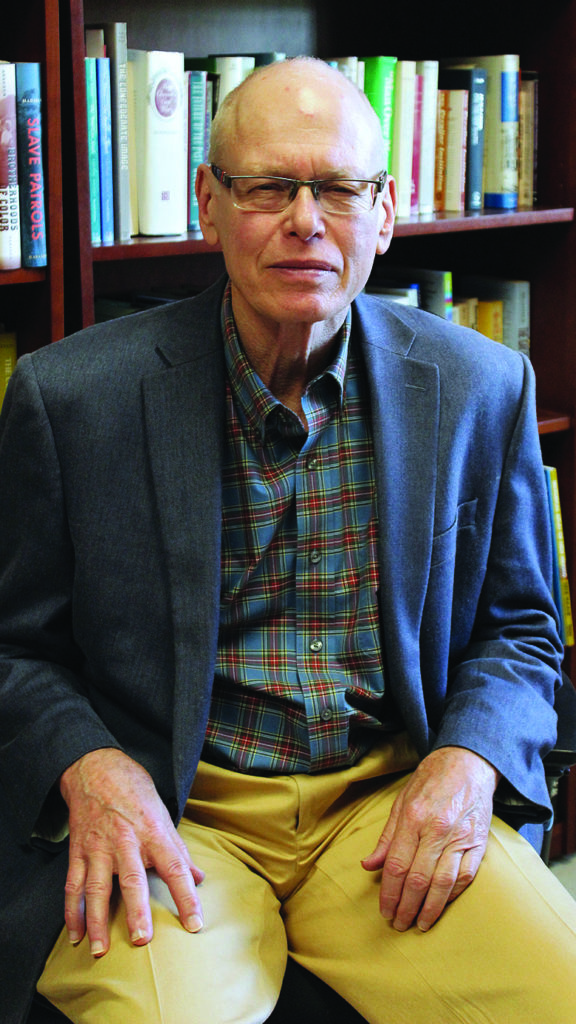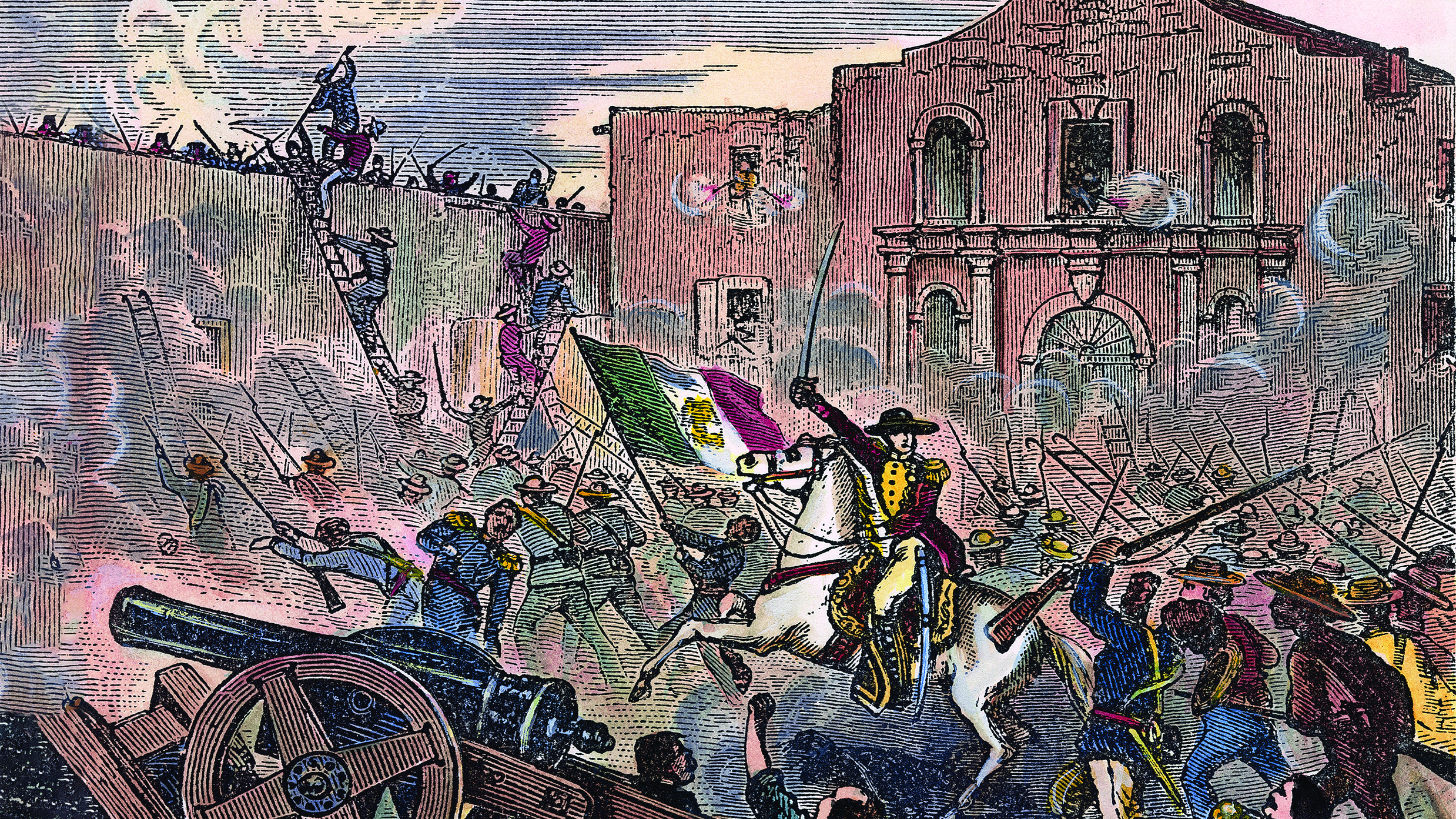Textbooks in Blue California explain history one way while red Texas takes an opposite tack
Besides being Summerlee Foundation Chair in Texas History at The University of Texas, Austin, Walter L. Buenger is chief historian for the Texas State Historical Association. Buenger, who earned a Ph.D. from Rice University, has written or co-written four books. He is writing a re-conceptualization of Texas and the Southwest, working title Texas Since 1810: Border Crossings and Shifting Identities over Time.

The Texas State Board of Education has sparked controversy with a textbook review process in which politics and ideology have appeared to drive revisions to American history texts. To a degree that should make any historian uncomfortable, politics remains at the heart of decisions as to what should and should not go in textbooks and be emphasized in public school classrooms. The most revealing issue is what caused the Civil War. In recent years the board finally conceded that slavery was the primary cause, but it still insists on listing secondary causes.
Should parents, politicians and others with no academic background serve on textbook review panels? No, but they deserve to be heard. Publishers and authors should base textbooks on firm evidence, especially primary source evidence, and on informed debate about the past by professional historians. Still, we need a pragmatic approach that listens respectfully to those outside the profession and explains the need for evidence-based history. This approach can be slow, as seen in the long fight about the causes of the Civil War, but it does bring change that is generally more widely accepted. Antagonism is counterproductive.
Aside from indisputable facts, is it fair to say there is no completely objective way to teach an interpretative subject like history? Complete objectivity is an impossible dream. History changes with the times and with the given historian’s point of view—but history that moves from evidence-based to opinion- and ideology-based ceases to be history. Teachers and historians must be aware that they bring their own life experiences and possible biases to bear. They need to counter that, to the extent possible, by being open-minded and by listening to other teachers and other historians. They need to read, study, and learn. I recommend approaching the past from the past forward, not from the present backward. To explain secession, for example, go back to 1850, then come forward. Do not start in 2020 with all the biases and pre-conceptions of our age and go back to 1861.
Do some topics lend themselves more to interpretation than others? Capitalism, say, can be viewed from very different angles. Yes, of course. Many in the profession do argue about capitalism. I find the argument that enslaved labor was an extreme form of capitalism and a tool to reduce the cost of production to be a compelling one. Still, if you assume capitalism to have been built upon wage labor, elements of slavery are pre-capitalist. There is also room for nuanced, multi-faceted arguments about the cause, outcome, and impact of World War I. That list could go on, and surely is longer than a list of topics about which historians overwhelmingly agree. The key for me is to stay humble. I could be wrong. We could be wrong, and we as a profession need to be willing to change and engage in respectful debate about the past.
Have you ever caught flak for your viewpoints? I always catch flak. One example: I often say that in 1836 the Alamo had a flat roof. That fancy top was added a decade later, and that’s a metaphor for understanding the Texas Revolution and much of Texas history: It’s been added on after the fact. The average student’s or average non-historian’s knowledge of Texas and U.S. history is heavily influenced by what someone wants to believe or what their ideology, status, or uncritical reading encourages them to believe. I take students and all who will listen back to 1836, and alert them to the dangers of listening to what was added on after the fact.
A recent New York Times article compared sharp differences between history texts in California and those in Texas on immigration, guns, Reconstruction, civil rights, and other topics. California books seem to reflect a progressive viewpoint while Texas puts on a conservative spin—attributing opposition to Reconstruction, for example, to tax increases as well as racial resentment. Did these differences surprise you? No. In Texas, history—or perhaps I should say mythology—has always been political. Part of that reflects an ongoing attempt to maintain and conserve white supremacy and the status of the elite. To say that during Reconstruction complaints about taxation were especially loud because those taxes might benefit African Americans—to add that nuance about the past—calls the present into question.
Can politics be kept out of history? No. Politics cannot be kept out of history, but politics can help, for example, to take students to online sources where they can examine the reasons the Texas Secession Convention gave in 1861 for seceding. Let the students read the primary source themselves and provide context such as the stubborn fact that from 1850 to 1860 the fastest growing part of the Texas population was slaves.
Is a national standard for social-study textbooks desirable or even possible? A national standard might be a good thing, but how do you agree on that standard? It does not seem possible. Do you poll every historian? Do you appoint an elite committee? How do you listen to non-historians? The best solution probably is to have simple national guidelines that are endorsed by the major historical associations and organizations.
When everyone has a version of the truth, can educators hope to engender consensus on America’s history? I’m not especially optimistic that history can escape being a casualty of the culture wars, especially given the radical right’s general disdain for expertise in any field. All I can do is suggest that historians stay humble, avoid treating those who seem wrong-headed with disdain, and try to stress the need for a past-forward approach. If we can simply get across the concept that many people are looking at the past from the wrong end of the telescope, I could justify a smidgeon of optimism.
This interview appeared in the August 2020 issue of American History.






